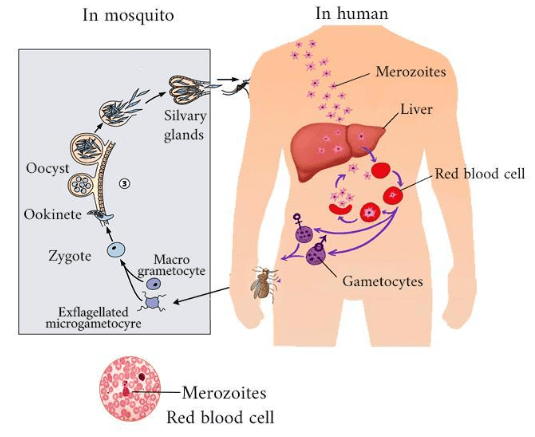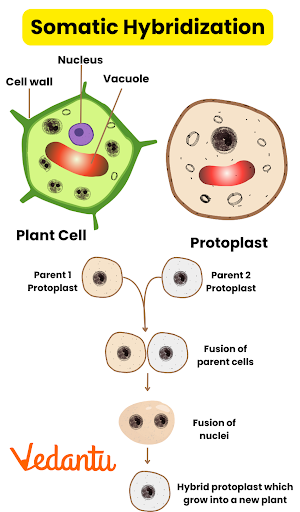Human Health and Disease Class 12 extra questions and answers Free PDF download


FAQs on CBSE Important Questions for Class 12 Biology Human Health and Disease - 2025-26
1. What are the most important questions from Class 12 Biology Chapter 7 Human Health and Disease, as per CBSE 2025-26 board trends?
- Explain the differences between innate and acquired immunity with examples.
- Describe the structure of an antibody molecule and its role in the immune response.
- Distinguish between benign and malignant tumours; provide characteristics and examples.
- Explain the life cycle of Plasmodium and how it causes malaria in humans.
- Discuss the causes, symptoms, and prevention of AIDS.
2. What is the expected marking scheme for Human Health and Disease Class 12 important questions in CBSE exams?
- 1-mark questions: Definitions, direct facts (e.g., 'Name the pathogen for typhoid').
- 3-mark questions: Short notes, differences, brief explanations (e.g., 'Differentiate between active and passive immunity').
- 5-mark questions: Elaborate answers including diagrams, processes, or mechanisms (e.g., 'Describe the life cycle of Plasmodium in detail').
3. Which frequently asked questions are considered HOTS (Higher Order Thinking Skills) for CBSE Class 12 Biology Chapter 7?
- How does removal of the thymus gland impact the immune system? Justify your answer.
- Analyze the impact of drug abuse on health and suggest effective prevention strategies.
- Compare humoral and cell-mediated immunity, focusing on their mechanisms.
- Why are passive immunizations used in certain cases, and what are their limitations?
4. How do CBSE board examiners typically frame questions to test understanding of immunity types in Chapter 7?
- By asking to compare active and passive immunity, with relevant examples.
- Requesting students to list barriers involved in innate immunity.
- Asking for diagrams and explanations of antibody structure or the immune response to infection.
5. What are some exam blind spots or common misconceptions students face about Human Health and Disease Chapter important questions?
- Confusing innate immunity (present at birth, nonspecific) with acquired immunity (developed after exposure).
- Misidentifying the stages of Plasmodium’s life cycle and which host which stage occurs in.
- Assuming all immunity results in long-term memory; passive immunity does not create immunological memory.
- Thinking all tumours are cancerous (benign tumours are not malignant/cancerous).
6. Explain how pathogens cause major communicable diseases covered in Human Health and Disease Important Questions for Class 12 Biology.
- Malaria: Caused by Plasmodium species, transmitted by female Anopheles mosquito. Parasite multiplies in liver/RBCs, leading to fever, chills.
- AIDS: Caused by HIV, which damages helper T-cells, weakening immunity and increasing susceptibility to infections.
- Typhoid: Caused by Salmonella typhi, spreads through contaminated food/water, confirmed by Widal test.
- Pneumonia: Caused by bacteria like Streptococcus pneumoniae; affects lungs, causing breathing difficulty.
7. Differentiate between communicable and non-communicable diseases in the context of CBSE Class 12 Biology Chapter 7 important questions.
- Communicable diseases: Spread from person to person, typically caused by pathogens (e.g., malaria, AIDS).
- Non-communicable diseases: Do not spread person-to-person, often due to genetic, lifestyle, or environmental factors (e.g., cancer, diabetes).
8. What are the two main properties that distinguish cancer cells from normal cells, as per important questions for Chapter 7?
- Cancer cells show uncontrolled proliferation without differentiation.
- Cancer cells can invade other tissues and metastasize (spread to distant sites), while normal cells do not.
9. How is the life cycle of Plasmodium relevant to board important questions, and what diagram is typically expected?
The life cycle includes stages in both humans (liver and blood) and female Anopheles mosquitoes. A labelled diagram showing sporozoite, merozoite, gametocyte stages, and site of fertilization is typically asked for a 5-mark question.
10. What are the key differences between active and passive immunity in context with Class 12 Biology Chapter 7?
- Active immunity: Antibodies produced by the individual’s own cells after exposure to antigen or vaccine; long-lasting; slow onset.
- Passive immunity: Ready-made antibodies transferred to an individual (e.g., maternal antibodies in newborns, antiserum injection); short-lived; immediate protection.
11. In the context of CBSE 2025-26 pattern, how can students maximise their marks using important questions for Human Health and Disease?
- Practice elaborative answers for 5-mark questions, including diagrams and stepwise explanations.
- Revise differences/tables (e.g., types of tumours, types of immunity) for scoring quick marks.
- Focus on understanding mechanisms (e.g., how antibiotics work, drug abuse effects), not rote memorization.
- Attempt recent years' board questions as mock tests.
12. According to Human Health and Disease CBSE important questions, what are autoimmune diseases and give two examples?
Autoimmune diseases occur when the immune system mistakenly attacks the body’s own healthy tissues. Examples: Rheumatoid arthritis and Myasthenia gravis. This is asked in 1–2 mark questions.
13. What strategies should be followed to answer long-answer important questions in CBSE Class 12 Biology Chapter 7 effectively?
- Follow a structured format: introduction, key points, explanation with examples/diagrams, and concise conclusion.
- Underline keywords (in written exams), draw neat diagrams for processes (e.g., antibody structure, life cycle of Plasmodium).
- Directly address all parts/sub-questions; avoid irrelevant info.
14. Describe effective prevention and control measures for drug and alcohol abuse as per CBSE Class 12 Human Health and Disease important questions.
- Education and counselling to dispel myths and inform about dangers.
- Avoid undue peer pressure and provide supportive environment for youth.
- Early identification of risk factors and professional help for those affected.
- Strict regulation and awareness in schools and communities.
15. How do examiners test conceptual traps related to vaccination and its types in Human Health and Disease important questions?
By asking to:
- Differentiate between live attenuated and inactivated vaccines.
- Explain why some vaccines require boosters.
- Clarify the difference between immunisation and vaccination.
- Correct misconceptions that vaccines always confer lifelong immunity (some offer only temporary protection).



























